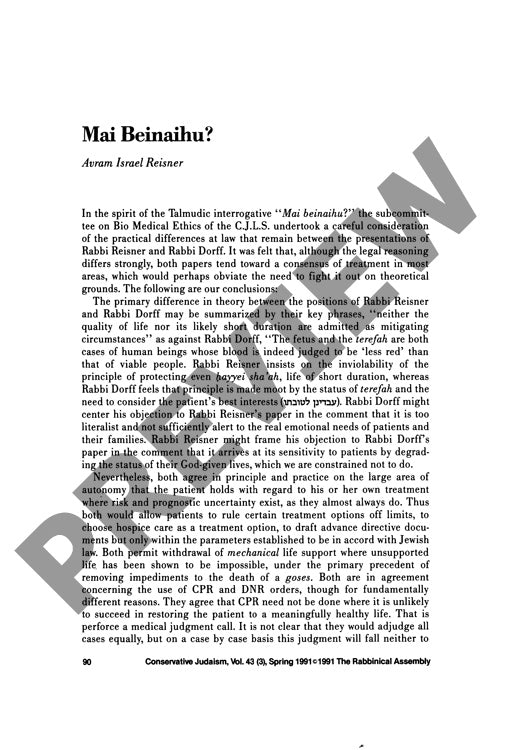Mai Beinaihu
Couldn't load pickup availability
Two prominent Conservative Jewish scholars have charted distinct paths through the complex terrain of modern biomedical ethics, revealing how ancient halakhic principles can address contemporary end-of-life challenges. While Rabbi Reisner champions the protection of *hayyei sha'ah* (life of short duration), Rabbi Dorff draws upon the concept of *terefah* status to consider quality of life in medical decision-making. Through systematic examination of traditional Jewish legal reasoning, this comparative analysis reveals that despite their philosophical divide, these approaches converge significantly on practical matters including patient autonomy, mechanical life support withdrawal, and DNR protocols. Notable divergences emerge in specific scenarios: medication withdrawal for terminal patients, artificial nutrition and hydration, treatment of persistent vegetative states, and pain management protocols that may accelerate death. The investigation demonstrates how both frameworks successfully balance halakhic tradition with modern medical realities and pastoral needs, offering complementary rather than competing models for Conservative Jewish bioethical discourse.

More Information
-
Physical Description
-
Publication Information
Published 1991
ISBN
-
Publication Credits
Avram Reisner

